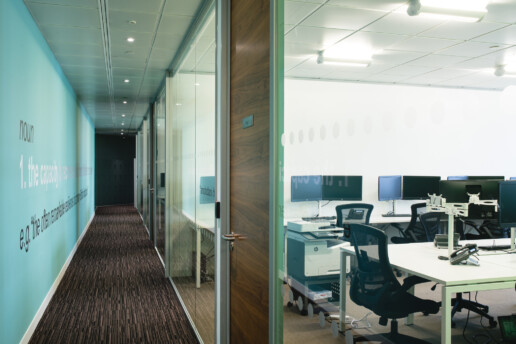
The Collins Dictionary’s word of the year for 2022 was “permacrisis”. It sums up the world we live in today and this seemingly endless sequence of challenges and disruptions means the corporate world has had to swiftly adapt.
Remote working became the unexpected hero for many businesses, but is it the be-all and end-all for organisational resilience? For regulated businesses, such as banks and trading institutions, the answer leans towards ‘no’. The concept of a fallback office is garnering renewed attention, and here’s why.
The Perils of Complete Remote Dependency
While technology has made it feasible for most of us to work from virtually anywhere, complete reliance on remote setups isn’t without risks. Imagine a scenario where a significant portion of employees faces simultaneous power or internet outages due to a widespread calamity for example.
Under such circumstances, unless you have built resilience into home infrastructure (see www.reskube.com) the touted flexibility of remote working can suddenly become a vulnerability.
For industries where regulation is stringent, the risks are manifold. Regulatory bodies often require businesses to have contingency plans that assure service continuity under a broad range of disruptive scenarios. A trading organization, for instance, cannot afford prolonged downtimes without severe financial and regulatory consequences.
So, organisations are looking once again at the benefits of a Fallback Office.

A fallback office serves as a crucial linchpin in ensuring business continuity, especially in today’s unpredictable environment. Beyond merely being an alternate workspace during disruptions, it underscores a company’s dedication to regulatory compliance, centralized recovery operations, and data security.
While remote work provides flexibility, it’s not without vulnerabilities—power outages, internet downtimes, or regional crises can halt operations (Reskube aside). Fallback offices not only safeguard against these vulnerabilities but also offer a conducive environment for team collaboration. In essence, it’s a strategic investment that amplifies a business’s adaptability, resilience, and foresight.
The Compelling ROI of Recovery Suites
Contrary to what some might assume, the strategic value of maintaining a physical office hasn’t diminished. Many firms are realizing the solid return on investment in having a 20-position recovery suite.
This suite acts as a beacon of stability during confusing and stressful times, offering a centralized location for critical functions. Here, a company’s recovery operations can take place, the crisis management team can convene and strategize, and pivotal departments like IT and HR can ensure services remain uninterrupted.
Moreover, these suites aren’t just any office spaces. They are equipped with advanced infrastructure tailored to rapid recovery and adaptation. They serve as a physical testament to a company’s commitment to resilience and reliability.
Dedicated Work Area Recovery: The Preferred Choice
The recent pandemic lockdown was enlightening in many ways. Banks and trading organizations, in particular, experienced the limitations of syndicated work area recovery firsthand. Sharing access to recovery spaces with other businesses may sound cost-effective, but when a large-scale disruption happens, access is limited and the pitfalls become evident. As a result, a shift towards dedicated work area recovery is noticeable. These dedicated spaces ensure that a business’s recovery operations aren’t hampered by external factors or dependencies.
FortressAS Recovery Centres
FortressAS’s modern recovery centres provide Dedicated and Syndicated work area recovery services in Crossharbour and South Quay offer a comprehensive solution for businesses aiming to ensure uninterrupted operations in the face of unforeseen challenges.
These state-of-the-art centres are pleasant working spaces and tailored to provide a seamless transition during disruptions, ensuring data integrity, and regulatory compliance.
Equipped with advanced technology and infrastructure (8 minute recovery for Syndicated WAR), they support rapid response and recovery, minimizing downtime and potential revenue losses.
Furthermore, their strategic locations offer accessibility while ensuring security, with dedicated spaces that allow businesses to maintain their unique operational needs. Leveraging Fortress Availability Services’ recovery centres not only underscores a commitment to resilience but also instills confidence among staff, stakeholders and regulators demonstrating a proactive approach to risk management.
Conclusion
As we navigate the age of permacrisis, it’s crucial to remember that while remote work offers undeniable advantages, it’s not a panacea.
The role of a fallback office, especially for regulated industries, remains irreplaceable. Investing in dedicated recovery spaces is not just about having a physical location; it’s about ensuring that when the next crisis hits, a business is not just prepared, but poised to use its competitive advantage to thrive.
See more here: www.fortressas.com
